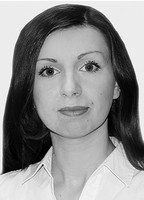Team building concept as safety factor in sport tourism
Фотографии:
ˑ:
Teoriya i praktika fizicheskoy kultury №6 2017, pp.89-90
Y.A. Karvunis1
Dr.Med., Professor L.V. Kapilevich1, 2
1National Research Tomsk State University, Tomsk
2National Research Tomsk Polytechnic University, Tomsk
The fast growth of active forms of tourism is associated with a variety of challenges, and one of them is the tourist group formation approach. A prudent team building approach may be pivotal in the efforts to prevent emergency situations, conflicts and accidents and facilitate good team spirit and teamwork, with effective solutions being found both for individual teammates’ problems and hardships faced by the tourist team in general, so that the individual recreational needs and sport goals of the teammates are effectively satisfied and attained.
Objective of the study was to assess contributions of different team building factors in overall safety of sport tourism. We obtained and analysed data on the fitness levels of the teammates and their expectations in the trekking events. Subject to the questionnaire survey were the 18-30 year-old members (n=27) of the student sport tourism clubs of Tomsk city in the autumn 2016.
We believe that a professional and theoretically grounded tourist group building concept giving a high priority to the mental, motivational and other individual traits of the active tourist group members will be beneficial in scaling down the emergency situations, conflicts and accidents in the sport trekking events.
Keywords: sport and health tourism, team building, safety.
References
- Ofitsialny sayt Sibirskogo regionalnogo tsentra MChS Rossii: Informatsiya dlya turisticheskih grupp [Official site of Siberian Regional Center of EMERCOM of Russia: Tourist Information]. Available at: http://siberian.mchs.ru/
- Kalashnikova T.V., Krakovetskaya I.V., Danilova N.E. Upravlenie razvitiem fizicheskoy kultury i sporta: finansovy aspekt [Physical culture and sport industry development management: financial perspective]. Teoriya i Praktika Fizicheskoy Kultury, no. 2, 2016, pp. 100-103.
- Karvunis J.A., Kapilevich L.V. Sostoyanie i perspektivy razvitiya aktivnogo turizma v molodezhnoy srede Tomskoy oblasti [State and Prospects of Development of Active Tourism among Youth of Tomsk Region]. Teoriya i Praktika Fizicheskoy Kultury, 2014, no. 10, pp. 62-65.
- Karvunis J.A., Kapilevich L.V. Aktivny turizm kak perspektivnaya forma rekreatsii studencheskoy molodezhi v kanikulyarnom periode [Active tourism as promising form of recreation for students on vacation]. Teoriya i Praktika Fizicheskoy Kultury, 2015, no. 11,
- Karvunis J.A., Kapilevich L.V. Spetsifika fizkulturno-ozdorovitelnykh i rekreatsionnykh programm v sisteme detsko-yunosheskogo turizma [Specificity of fitness and recreational programs in children and youth tourism]. Teoriya i Praktika Fizicheskoy Kultury, 2016, no. 2, P. 86-87.
- Neretina T.G. Orekhova T.F., Ovsyannikova E.A., Klevesenkova S.V. Opyt razvitiya studencheskogo dosugovo-ozdorovitelnogo turizma [Students' health and recreation tourism promotion experience]. Teoriya i Praktika Fizicheskoy Kultury, 2016, no. 8, pp. 41-43.



 Журнал "THEORY AND PRACTICE
Журнал "THEORY AND PRACTICE